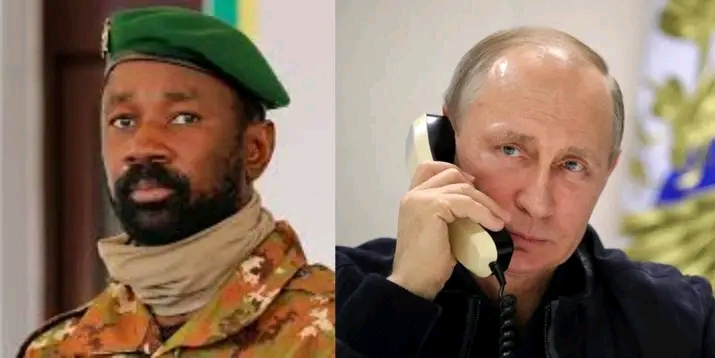By Ollus Ndomu
Russian President Vladimir Putin engaged in a phone conversation with Mali’s junta leader, Assimi Goita, focusing on security and economic cooperation, particularly in the fight against terrorism.
This discussion follows similar dialogues between Putin and leaders of other West and Central African nations, signaling Russia’s concerted efforts to bolster ties with African countries.
The conversation with Mali’s junta leader comes amidst a backdrop of shifting alliances in the region, with several West African nations, including Mali, Burkina Faso, and Niger, opting to sever military ties with Western allies.
These nations have formed the Alliance of Sahel States (AES) and turned to Russia for support amid ongoing security challenges in the region.
Notably, Putin’s recent diplomatic exchanges with West and Central African leaders reflect Russia’s broader strategy to expand political, economic, and humanitarian relations with African nations.
The dialogue with Mali’s junta leader underlines Russia’s commitment to enhancing cooperation with African partners on key issues, including security and counterterrorism efforts.
Furthermore, the discussion with Niger’s junta leader follows Niger’s decision to revoke its military accord with the United States, opting for closer ties with Russia and Iran.
This strategic move highlights the evolving geopolitical dynamics in West Africa and the growing influence of non-traditional partners in the region.
As Russia deepens its engagement with African countries, particularly in the security domain, the implications of these diplomatic exchanges extend beyond bilateral relations to shape the geopolitical landscape of the broader Sahel region.


